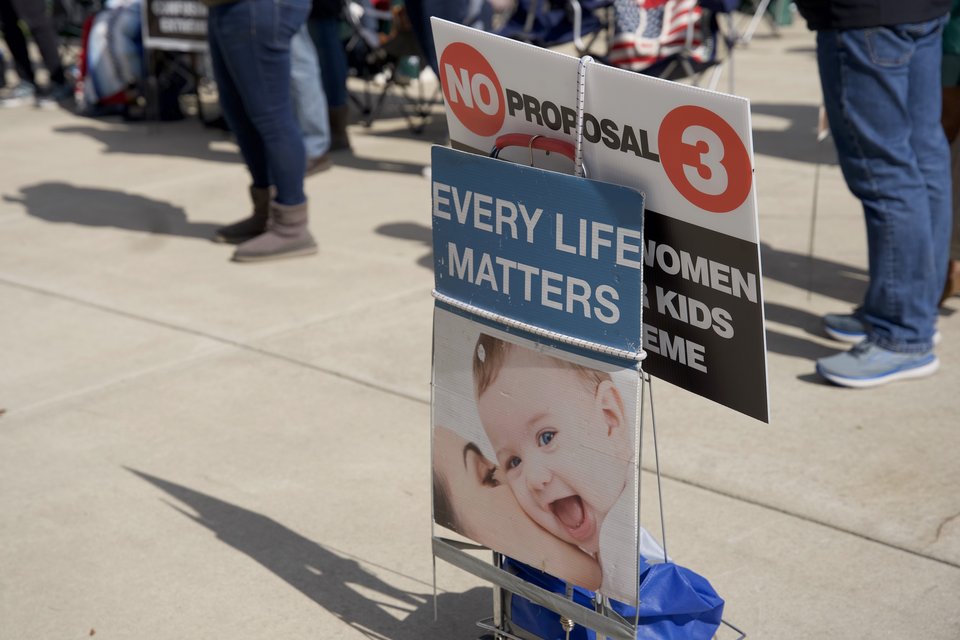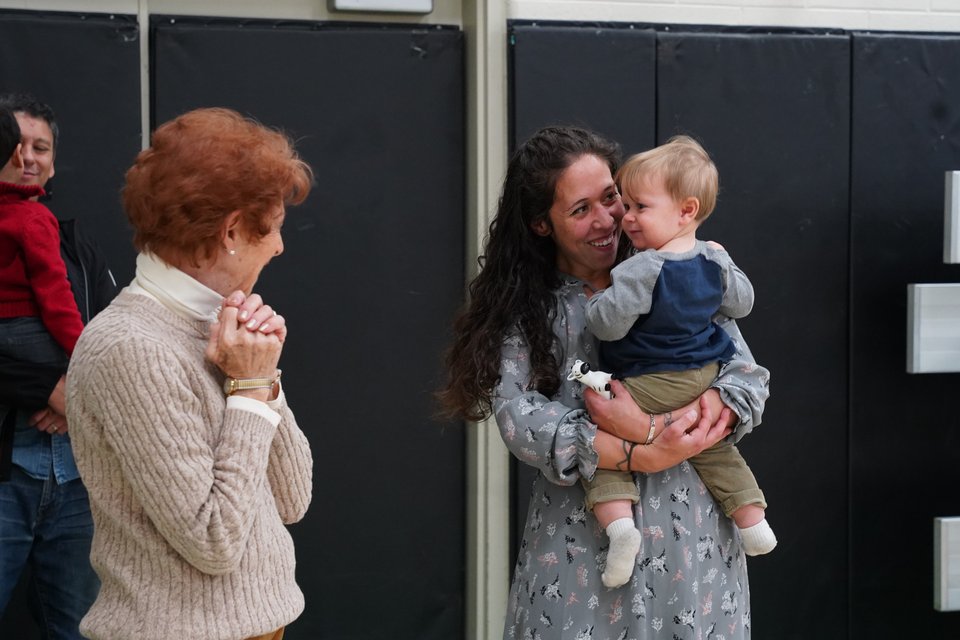Readings for the Twenty-eighth Sunday of Ordinary Time:
2 Kings 5:14-17
Psalm 98:1, 2-3, 3-4
2 Timothy 2:8-13
Luke 17:11-19
“His flesh became again like the flesh of a little child” (2 Kings 5:14). It is difficult to comprehend the death-to-life transformation of a man healed of leprosy. It is striking that Sacred Scripture helps us appreciate Namaan’s new life by comparing his flesh to that of a little child.
There is something so vital about a little child that children help us understand what it is to be truly alive. It is all the more bitterly ironic, then, that the lives of countless little children are called into question and threatened by a national push for legalized abortion, in the wake of the Supreme Court’s Dobbs decision overturning Roe v. Wade. Specifically, here in Michigan, Proposal 3 threatens to enshrine a virtually unlimited right to abortion in our state constitution.
What does the word of God reveal to us this Sunday? That the Lord is the Source of life. That life is a gift, for which we are called to give profound thanks. Through the Prophet Elisha, God healed Naaman the Syrian. Naaman was healed by washing in the water of the Jordan River, a potent symbol not only of new life but of supernatural life given in the Sacrament of Baptism.
God reveals to us His gifts of natural and supernatural life also in Sunday’s Gospel and Second Reading. We see Jesus heal the 10 lepers, with only one of them returning to give thanks when he realizes God has given him new life. And in the Second Reading, the first way St. Paul describes Jesus Christ is to say that He is “raised from the dead.” He died, but He is alive; He is risen. And then Paul goes on to assure his readers, and all of us, “If we have died with him we shall also live with him.”
Our first response to God’s gift of life must be gratitude. As Blessed Solanus Casey tells us, “Gratitude is the first sign of a thinking, rational creature.” The Samaritan leper in the Gospel “fell at the feet of Jesus.” So, too, we must fall at the feet of Jesus in prayer and thanksgiving for this most basic of all of God’s gifts.
Our second response to God’s gift of life is to make the most of it. Remember the Parable of the Talents. Or think of Luke 12:48, “Much will be required of the person entrusted with much, and still more will be demanded of the person entrusted with more.”
With peace of heart, and trusting in the Lord’s mercy, we must strive to fulfill our potential and to do all we can with the time, energy, and abilities God has given us. We need to make the most of our natural lives, and to take faithful care of the “pearl of great price,” the divine life the Father has given us in Christ.
Our third response to God’s gift of life, one closely tied to the other two responses, is to protect life from every evil threat. Just as in Scripture God uses human instruments, such as the Prophet Elisha, to give life, so He wants to use us to protect and defend life at all of its stages.
Our God-given mission to protect life demands that we vote “no” on Proposal 3. The lethal consequences of Proposal 3 should make the blood of any thinking and feeling person run cold.
Even those who, tragically, support abortion should shudder at the gruesome extremism of the proposal. Proposal 3 would allow unfettered abortion for all three trimesters of pregnancy — including partial-birth abortion. It would also undercut parental rights and the protection of young expectant mothers. And it would allow non-medical professionals to perform abortions in facilities that are not accountable even to cleanliness standards.
A good friend of mine recently told me that this past summer she was legally obligated to accompany her 17-year-old daughter so that the daughter could get her ears pierced. Yet under Proposal 3, even younger girls could get an abortion without parental consent.
This is madness. It’s not health care. It’s not “reproductive freedom” (an expression used in the proposal’s text). It is the setting in concrete of a fabricated “right” to kill innocent children.
It is not enough to stand on the sidelines. We must vote “no” and stop this evil.
What about mothers? I promise that God and His Church love all mothers, including those who have made the tragic choice to have an abortion. Jesus and His Church long to forgive and to heal women who have made this choice and who turn back to the Lord, especially in confession.
And when it comes to helping mothers in difficult circumstances who choose life for their children, the Church has always been and continues to be on the front lines helping them. We need to do more, certainly. But we do a lot and we are ready to do much more to care for women and children who need our help.
Sometimes people ask, “Why does the Church have to get political?” Remember what St. Paul writes in Sunday’s Second Reading: “The word of God is not chained.” True, the Church does not endorse political candidates or parties. But the word of God does enlighten, inform, and shape our approach to every sphere of human life. What we do in the political sphere is of tremendous consequence. When it comes to voting “no” on Proposal 3, it is a matter of life and death.
Our conviction about the dignity of every human life is not popular today. Like St. Paul and countless other saints, we are called to suffer for our faith in Jesus Christ. We take up our crosses and follow Jesus with firm resolve, with peace, and with confidence, remembering Christ’s last words to His disciples in John’s account of the Last Supper (John 16:33):
“In the world you will have trouble, but take courage, I have conquered the world.”
Fr. Charles Fox is vice rector and dean of seminarian formation at Sacred Heart Major Seminary in Detroit. He holds an S.T.D. in dogmatic theology from the Pontifical University of St. Thomas Aquinas (Angelicum), Rome.
Copy Permalink
Proposal 3












